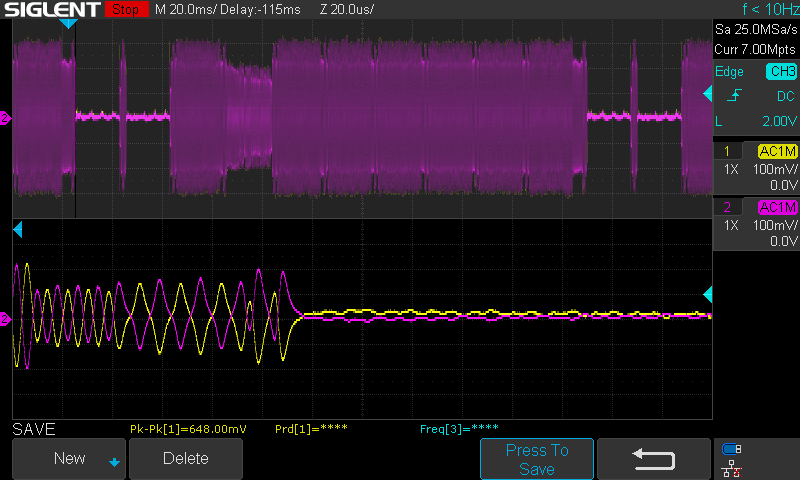
There’s a lot of data on magnetic media that will soon be lost forever, as floppies weren’t really made to sit in attics and basements for decades and still work. [Chris Evans] and [Phil Pemberton] needed to read some disks that reportedly contained source code for several BBC Micro games, including Repton 3. They turned to Greaseweazle, an interface board that can dump just about any kind of floppy disk if it is attached to the right drive. The problem is that Greaseweazle couldn’t read the disks due to CRC errors. Time to break out the oscilloscope and read the disk manually, which is what they did.
Greaseweazle provides a nice display of read sectors and shows timing coming from the floppy read head. The disk in question looked good with reasonably clean timing clocks except in the area of one sector. At that point, the clocks degenerated into noise. Looking on the disk, it was easy to see why. The actual media had a small dent in it.
Flattening the dent didn’t really help. There was a second disk that was in even worse shape for no apparent reason. The guys hooked their scope up and used Greaseweazle to attempt to read the disk, but captured the disk data directly from the drive.
It is funny that a floppy was high tech in its day, but now a cheap Siglent scope is powerful enough to capture the entire track at much higher resolution than the drive’s controller. It turns out that when you look at it that way, different drives even give slightly different results and that can make a difference when reading marginal floppies.
One neat trick: the team used Audacity to study the analog waveforms. It can import a CSV file and has great tools for looking at the data and even changing it. As a bonus, they can let us hear what the floppy data sounds like if you shift it into the human hearing range. Unsurprisingly, it sounds like an old modem.
If you are interested in recovering floppies or just enjoy seeing someone use a scope for interesting work, you’ll enjoy the post. There’s even some analysis of how some of the disks probably got the way they are. Between Greaseweazele and an oscilloscope, maybe more data can be saved.
Some scopes used floppy disks, so it is entirely possible that one day someone will use a scope to read the disk from a scope. If you want a super USB floppy drive try FluxEngine.
0 Commentaires